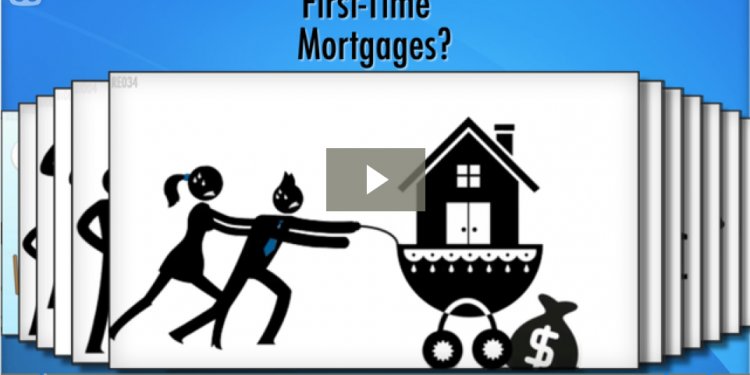
Special Mortgages

Not Everyone Has Money For Downpayment
Home buyers don't always come with high credit scores and a large downpayment. Rather, many have just "average" credit and very little savings at all.
In today's housing economy, though, both groups can apply for a mortgage and get approved at great rates.
Buyers with excellent credit and a sizable down payment may be drawn to the conventional loan via Fannie Mae or Freddie Mac, which offers low mortgage rates and excellent terms.
For those with average credit, or with fewer funds for downpayment, using the Federal Housing Administration's FHA mortgage may be best.
The FHA loan is often an excellent low-downpayment mortgage option for buyers and the program is available in all 50 states. It offers low interest rates, flexible guidelines, and even allows buyers to have closing costs paid by the seller.
About The FHA Mortgage Program
The first thing to know about FHA mortgages is that the FHA is not a lender. Rather, the FHA is an insurer of mortgages.
The FHA reimburses lenders when the loans they make go into default or foreclosure.
FHA stands for Federal Housing Administration. The group is a government agency within the U.S. Department of Housing and Urban Development.
The FHA will insure any loan which meets its collection of "rules", known as the FHA Mortgage Guidelines. FHA guidelines for a purchase mortgage include such specifications as :
- Borrower must be a U.S. citizen or permanent resident alien
- Borrower must show two years of income via W-2 and/or federal tax returns
- Subject property must be residential
The complete FHA guidelines are thorough and include provisions which benefit buyers with little money for downpayment, lower-than-average credit scores, and other non-standard needs.
FHA loans help more get people mortgage-approved.
FHA Loans Allow "Imperfect Credit"
With respect to credit scores, FHA mortgage guidelines are looser than the guidelines of comparable loan types including loans backed by Fannie Mae or Freddie Mac.
First, the FHA allows borrowers to carry below-average credit scores - something you cannot do with conventional mortgage financing.
In general, the FHA's minimum FICO threshold for mortgage applicants is 80 points lower than for a comparable loan via Fannie Mae or Freddie Mac.
Second, FHA guidelines allow for credit score exceptions when hardship has occurred. This, too, is not allowed with Fannie Mae and Freddie Mac.
Lastly, the FHA won't charge you higher rates or higher fees for less-than-perfect credit scores. By contrast, Fannie Mae and Freddie Mac may charge up to 3 discount points for having "low scores" or for having too high of a loan-to-value (LTV).
3 discount points yields a one-time closing cost equal to 3% of your loan size. If you borrow $200, 000, therefore, three discount points costs $6, 000.
FHA loans don't make such adjustments. Your credit can be "banged up" and you may still qualify for an FHA loan at the lowest available rates.
Furthermore, prior foreclosures, short sales, and bankruptcies don't disqualify you from FHA financing. Neither do judgments or collections. You will be asked to explain how and why these events occurred, but none will result in an automatic dismissal of your application.
FHA Loans Allow 3.5% Downpayment
You don't need a 20 percent downpayment to use the FHA home loan program. The FHA guidelines state that home buyers must only make a 3.5% downpayment.
Making a 3.5% downpayment means that for every $100, 000 borrowed, your must have $3, 500 at closing, at minimum. The FHA allows you to exceed its minimum downpayment requirements, if desired.
Not everyone will have the 3.5% downpayment, and the FHA knows it. This is among the reasons why program guidelines permit your downpayment to come in the form of a gift.
Downpayment gifts can come from a multitude of sources including family members, employers, approved charitable organizations, or the government as part of a housing grant program.
By contrast, most loan programs require buyers to bring at least some of their own money to a closing. The FHA does not.
FHA Loans Carry Low Out-Of-Pocket Costs
The FHA guidelines specifically permit sellers to give up 6% of a home's purchase price to an FHA buyer to pay for loan closing costs.
This is formally known as Interested Party Contributions, but most real estate agents call it Seller Concessions.
Average loan costs are typically three percent or less, though, which means that FHA buyers can get their closing costs paid-in-full by the seller without a catch. The allowance prevents buyers bringing more than the minimum 3.5% downpayment to closing.
The FHA also allows buyers to finance certain energy-efficiency improvement into their loans; as well certain home repairs.
Your FHA lender can help you determine which costs are allowed and which costs are not.
Lastly, as compared to other loan types, it can be easier to do a zero-closing cost mortgage via the FHA. This, too, can benefit buyers.
What Are Today's FHA Mortgage Rates?
FHA loans help buyers of all types - not just first-time buyers and certainly not just those with less-than-perfect credit. The FHA guidelines are meant to promote homeowners and the program remains popular today.
Get today's live mortgage rates now. Your social security number is not required to get started, and all quotes come with access to your live mortgage credit scores.
The information contained on The Mortgage Reports website is for informational purposes only and is not an advertisement for products offered by Full Beaker. The views and opinions expressed herein are those of the author and do not reflect the policy or position of Full Beaker, its officers, parent, or affiliates.

















